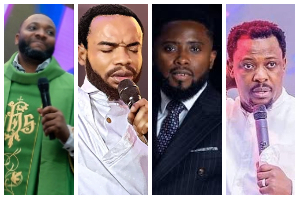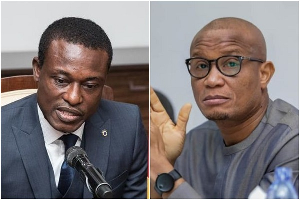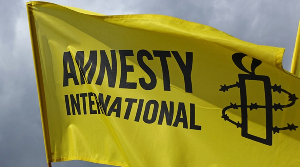Afterthought: The 2008 Presidential Election and Questions about the Electoral Commissioner.
The 2008 election period will be remembered in our modern history as one of the most exciting national experience. Looking back at the historical entries, I can compare the breathe-taking outcome to the victory of Kwame Nkrumah and the Convention People’s Party in 1951 or even to the poor 1969 election performance of the National Alliance of Liberals (NAL) notwithstanding the great campaign popularity of Gbedemah. There were those who saw Gbedemah as the money cow to leach. The justification was that Gbedemah had no money of his owe and that either he took it from the state when he was finance minister or, that, it was money hidden in foreign banks by Nkrumah and to which the former finance minister had access. Both assumptions were never proven to be true. With regards to Nkrumah’s historic 1951 victory, no one blamed the colonial government for conducting an election that was opaque.
Nkrumah’s ability to organize and galvanize the youth and workers was already known. It was only surprising that he could win such an important victory from prison. But Professor Mills was no Kwame Nkrumah. It was Nana Akufo-Addo who had the popularity that only Gbedemah exhibited, and the NPP had the advantage of incumbency on its side. It is therefore reasonable that the NPP presidential candidate would think that his loss could have happened only by one of two reasons—election fraud by the NDC and an Electoral Commission that was not vigilant. Both claims have been reduced to the logic that identifies Dr. Afari Gyan as the major culprit.
I am certain that even after the swearing into office of a new president, debate about the election will continue and in the process it is very likely that parliament and political pundits and NGO gurus will return to the conversation about the position of Electoral Commission and presidential terms. The first Fourth Republic election that Dr. Afari Gyan supervised as Electoral Commissioner was the one in 1996 which the NDC won. Having boycotted the 1992 elections, the NPP’s parliamentary gains were considerable and Kuffour’s first show as NPP presidential candidate was respectful. It was the same Dr. Afari Gyan who supervised the 2000 and 2004 elections both of which the NPP won. Why then would this same Afari-Gyan operate to secure an NDC win in 2008? It is my observation that Dr. Afari-Gyan needs to be commended for having done a great job. His neutrality can only be described as a great contribution to our democracy. As for the idea that the presidency should be for two five-year terms, I think that a possible ten-year term for a president is too long and will turn the presidency into something similar to that which exists in Senegal. Might it be that because our elections take place so close to the one in the United States every four years has the advantage of galvanizing our voters to do better?
David Owusu-Ansah is professor of history at James Madison University and author of the Historical Dictionary of Ghana (1995 and 2005 editions).
Opinions of Monday, 12 January 2009
Columnist: Owusu-Ansah, David














